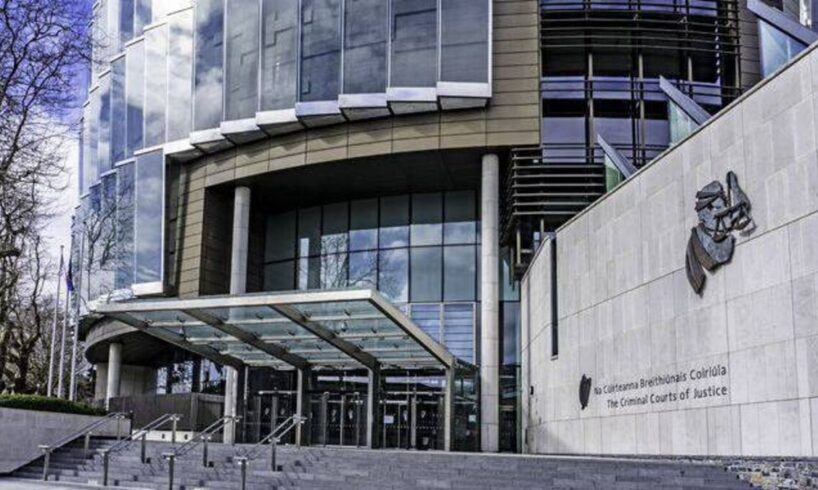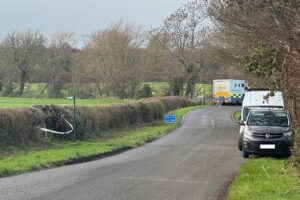
A woman has been convicted of facilitating the rape of her daughter by her brother — the child’s uncle — over 20 years ago.
The woman was convicted by a Central Criminal Court jury of one count of rape and two counts of sexual assault of her daughter while her brother was convicted of one count of raping the girl. The child was aged between three and a half and 15 at the time of the alleged abuse, the trial heard.
Jurors were unable to reach a verdict in relation to a third accused, a man who had been accused of the oral rape of the girl. They had deliberated for 10 hours and 15 minutes.
The three defendants had denied any wrongdoing and pleaded not guilty to a total of 21 charges. They can’t be named for legal reasons.
Today, jurors told Ms Justice Eileen Creedon that they had verdicts on some charges, but were unable to reach a verdict on other counts.
The woman, who is in her 50s, was on trial accused of 13 counts of sexual assault of her daughter on dates between 2000 and 2014.
She was found guilty of one count of rape, in that she facilitated the rape of the complainant by her uncle between 2003 and 2004.
She was also convicted of two counts of sexual assault at a family-owned holiday home. The jury acquitted her of two counts of sexual assault and was unable to reach a verdict on two further counts.
The jury was previously directed by Ms Justice Eileeen Creedon to return not guilty verdicts on a further seven counts of sexual assault for legal reasons.
The complainant’s uncle, who is in his 40s, had pleaded not guilty to five counts of rape and one count of oral rape on dates between 2003 and 2012, all at the family home.
He was convicted of one count of raping the girl on a date between 2003 and 2004.
Jurors were unable to reach a verdict on a further count of rape and on the oral rape charge.
The judge previously directed the jury to return not guilty verdicts in relation to three further counts of rape for legal reasons.
The third accused, a man aged in his 50s, had pleaded not guilty to one count of oral rape between 2008 and 2009 at the same address. The jury heard he was a friend of the accused woman’s then partner.
The jury were unable to reach a verdict on this count.
There was no reaction in court when the verdicts were read out.
Ms Justice Eileen Creedon thanked jurors for the time and attention they had given the case and excused them from jury service for seven years.
She remanded the woman and man into custody and set a sentence date next October.
The third accused was remanded on continuing bail to the same date for the prosecution to seek instructions from the Director of Public Prosecutions.
The complainant told the jury she lived with her mother, uncle and three other adult relatives when she was a child. All of the adults had issues with alcohol.
Her evidence was that she was three and a half when she alleged that her mother first sexually assaulted her in their bedroom, telling her it was a secret.
She said her mother sexually assaulted her on other occasions, including during a holiday at a family-owned holiday home, when she was around four.
She couldn’t recall how often the alleged abuse occurred, but said it stopped when she was 12, except for a final incident when she was 15.
The softly spoken complainant described being aged about five when she was raped for the first time by her uncle.
She had been watching TV in his bedroom and her mother left the room, returning with him. Her mother remained in the room, and afterwards, took her to their bedroom.
She outlined other occasions during which she said her uncle raped her, including an oral rape when she was around eight.
The complainant said she saw her mother and uncle engage in sex with each other while she was present in a room, when she was around six.
She said she normalised what was happening and it didn’t occur to her to tell anyone about it.
She said a friend of her mother’s then-partner orally raped her when she was 13, telling her during it that “your mother knows”.
She made a statement to gardaí about a separate matter in 2015, but said she didn’t make any allegations of a sexual nature then because she was afraid of the gardaí and had “blocked” out what had happened.
During cross-examination, she said she could not remember surrounding details about the alleged incidents involving the three defendants.
She said she thought her mother remained in the room while her uncle raped her for the first time, but later accepted it was possible she left.
When asked about her evidence that she saw her mother and uncle engage in sex, she agreed she would not have understood what she was seeing at that time. She also accepted she previously said she was four, when this occurred.
In relation to the alleged final sexual assault by her mother when she was 15, she said she didn’t believe it was possible it was another person.
When told that her uncle’s position is that none of the allegations occurred and it was something she imagined, the complainant replied that she didn’t imagine it and it had happened.
When it was put to her that her evidence that she was 13 when the second man allegedly orally raped her, but she had told gardaí she was 11, the complainant agreed this was a “big mistake”, adding “he still raped me”.
The complainant said she didn’t tell anyone about the alleged oral rape by the second man.
The complainant confirmed she moved in with female family friends at 17 and later moved into a family-owned holiday home, living there for several years.
This holiday home was left to one of these women by an adult relative in trust for the complainant. She said she lived with these family friends again during the second covid-19 lockdown.
When counselling records were put to her, she accepted telling a counsellor she was afraid of these two women during sessions in 2021 and 2022.
She said things had turned “toxic” during the second lockdown, but she didn’t know why. She rejected a defence suggestion that these female family friends influenced her to go to gardaí with allegations about her mother.
Asked about a counselling note which states the two female family friends “imposed false memories” on her, she insisted that this referred to her relationship with these two women.
She further accepted a 2016 counselling note which stated her memories were returning and she was unsure if they were real or not. She rejected the suggestion that this could still be the case.
Defence case When interviewed by gardaí, the three defendants denied the allegations made against them.
The complainant’s mother and uncle both told gardaí there was no alcohol dependency in the house.
The complainant’s mother denied sexually assaulting her daughter, facilitating or being present when her brother allegedly raped her daughter for the first time.
“That’s very vicious. I don’t understand that at all,” she said, in response to the allegation that the complainant saw her and her brother engage in sex with each other.
Asked by gardaí if her daughter was a liar, the woman said she “never thought she was”, noting they hadn’t spoken in a long time.
She replied “yes” when asked if she thought her daughter was a liar now.
The complainant’s uncle said the allegations he raped the complainant were “mindboggling”.
He denied raping the girl in his bedroom while her mother was present and ever engaging in sex with his sister, the complainant’s mother.
When he was asked if the complainant was a liar, he said “I would have said no, until this. I thought she was always telling the truth, but not after this”.
When interviewed, the second man said, “I never touched that lady”.
He said he “never went near that girl”, swearing it on his parents’ graves.
Two female family friends gave evidence that the complainant lived with them twice.
These women said the adults in the complainant’s home when she was a child all had issues with alcohol, describing it as chaotic.
The first woman gave direct evidence that “alcohol had a place in their house that a cup of tea would have in someone else’s”.
Both women confirmed that a family-owned holiday house was left in trust to one sister for the benefit of the complainant following the death of an adult relative.
They both agreed that there had been arguments while the complainant stayed with them during the second Covid-19 lockdown.
Both denied that they pushed the complainant to make sexual allegations against her mother.
Closing speeches In her closing speech to the jury, Anne-Marie Lawlor SC, prosecuting, submitted that the complainant was telling the truth, without “embellishment”.
She told jurors they must decide if the fact that the complainant cannot give other details about the alleged incidents “detracts from the core of what she told you”, suggesting jurors heard “unadulterated, unembellished, consistent evidence” from the complainant.
Desmond Dockery SC, for the complainant’s mother, suggested that the allegations made against his client could not be “road-tested” as the complainant cannot remember details.
He told jurors that if they find the complainant’s uncle guilty of rape, it does not follow that his client aided and abetted this. He said they must be convinced his client was in the room and knew what was going to happen.
Mr Dockery told jurors that not guilty verdicts do not mean his client is innocent or the complainant “not worthy of belief”.
“All they would mean is that this is one of those cases that is not capable of being proven to a standard beyond reasonable doubt,” he said.
In his closing speech for the complainant’s uncle, Michael Lynn SC submitted the key question was not whether complainant was telling lies, but whether the evidence was sufficient to convince jurors beyond a reasonable doubt of his client’s guilt.
Referring to the complainant’s counselling notes and a letter she wrote in 2019, he asked the jury to consider the issue of recovered memories.
Damien Colgan SC, defending the second man, described it as a “glaring mistake” that the complainant gave evidence she was 13 when the incident occurred, before accepting she told gardaí it happened when she was 11.
Mr Colgan suggested the complainant had told “mistruths”, or what she referred to as “mistakes”. “If they are mistakes, they are serious, big mistakes,” counsel said.





